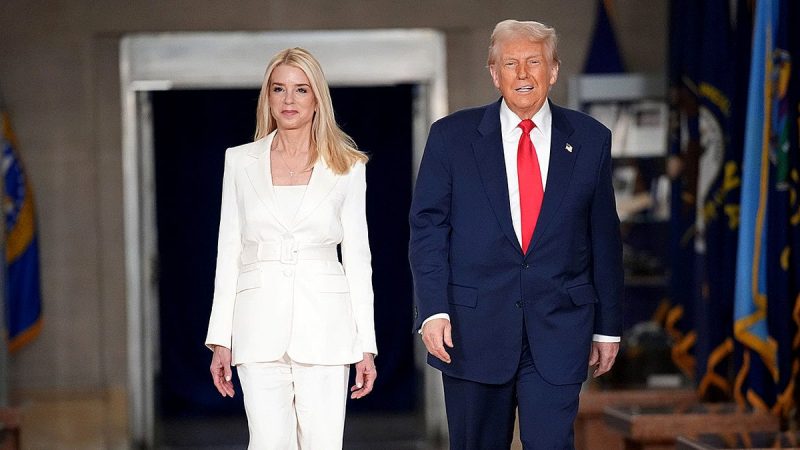Market Reaction to Election Results: What the Experts Are Saying

Markets surged in the aftermath of the presidential election, and while it’s true that long-term investors have done well regardless of which party holds the White House, traders and tacticians have very different incentives and time frames.
Capital is rarely destroyed, but it does move around. As such, the potential implications for asset prices and economic developments have market participants recalibrating bets across classes, sectors, industries and even specific stocks.
Sector leaders early Wednesday included financials, industrials and energy names, while real estate and utilities weighed on the market. Small-cap stocks also outperformed, with the Russell 2000 Index gapping up more than 5% at the open. Benchmark 10-year Treasury notes sold off, raising borrowing costs at the longer end of the yield curve. Gold and oil declined.
Also note that the CBOE Volatility Index (VIX) plummeted. Although election uncertainty has been removed from the list of worries fueling the market’s so-called fear gauge, one day’s action does not make a trend.
With the 2024 election now a matter of record, we turned to economists, strategists and other experts for their thoughts on what the regime change in Washington could mean for markets, macroeconomics and monetary policy going forward.
Please see a selection of commentary below, sometimes edited for brevity or clarity.
Markets & macro: The experts weigh in

“Markets hate uncertainty and now that the election is officially over, stocks are soaring today. Optimism over tax cuts, a still dovish Fed, and a potentially better economy are part of it, but the reality is the economy has been quite solid all year, so this really isn’t anything new. Back to your regularly scheduled bull market is how we see it.” – Ryan Detrick, chief market strategist at Carson Group
“A key driver for stocks in the near term will be the reduction in political uncertainty, a dynamic that typically drives strong year-end returns in Presidential election years. Along with the resolution of election uncertainty, resilient recent economic growth data and continued Fed rate cuts support the healthy near-term outlook for U.S. stocks. We believe investors and corporate executives will now focus on four issues relating to the US equity market: (1) Post-election path of the S&P 500 index; (2) Equity investor positioning; (3) Rotations within the market, including those relating to trade and tax policy; and (4) The outlook for corporate M&A and IPO activity. We maintain our 12-month S&P 500 index target of 6300, reflecting a 9% gain from the current level.” – David Kostin, chief U.S. equity strategist at Goldman Sachs
“The market’s reaction to the election outcome has been robust, with U.S. equities experiencing significant gains. Small caps and regional banks are particularly benefiting from investor confidence in pro-cyclical policies and potential deregulation. This reflects a broader optimism about U.S. economic resilience and growth prospects, as these sectors are poised to capitalize on increased M&A opportunities and a favorable regulatory environment.” – Jacob Manoukian, head of U.S. investment strategy at J.P. Morgan Private Bank
“Corporate fundamentals are on solid ground, profits are expected to grow over the coming quarters, and stock prices reflect a healthy environment. Stocks are sitting on very healthy year-to-date gains, with all 11 sectors expected to grow profits in 2025. Normalized inflation levels should continue to relieve pressures on consumers and businesses over time. Notably, lower interest rates could help add support for lending activities, business investment, and improve affordability across larger-ticket consumer items, such as homes and autos. America is working, and consumers/businesses are spending. As a result, U.S. growth trends remain the envy of the world.” – Anthony Saglimbene, chief market strategist at Ameriprise
“Favorable macro drivers still dominate, and the prospect of a Republican sweep and lower taxes is adding to the market enthusiasm. That may get tempered in the coming weeks by more details regarding tariff policy or a continued rise in long-term Treasury yields, but for the past two years we’ve said that the environment is favorable for risk taking and that remains the case.” – Yung-Yu Ma, chief investment officer at BMO Wealth Management
“Trump’s win implies import tariffs in 2025, giving the Federal Reserve less scope to ease. The scope for tax cuts and a much larger budget deficit in 2026 remains unclear given that the race to control the House is finely balanced, but we can now be almost certain that tariffs on imports will be imposed next year. A renewed downturn now looms for the manufacturing sector, which has stagnated this year. Retaliation by foreign governments with their own tariffs and the stronger dollar will weaken exports, while it will remain much cheaper to source goods from overseas. In the past, the Fed has looked through adverse supply shocks, but with core PCE inflation now unlikely to return to the 2% target and households’ medium-term inflation expectations still above target-consistent rates, it will have to change course this time.” – Samuel Tombs, chief U.S. economist at Pantheon Macroeconomics
“After a decisive presidential election, our first take on financial markets is that the U.S. dollar rally still has room to run, U.S. longer rates have more quickly priced in the election outcome, a U.S. equity melt-up into year-end is a real possibility, and European stocks, while already pricing tariff risk, may keep lagging.” – the team at Barclays Cross Asset Research
“Capital is rarely destroyed; usually, it just moves around. Capital simply oozes through the global financial system in search of where it is most welcomed and used productively on a relative (not absolute) basis. That’s the primary reason U.S. equities outperform rest of world stocks and why the dollar remains the world’s reserve currency despite relatively high Federal deficits. It’s not that U.S. companies are uniformly the best enterprises, or the U.S. system of government is an optimal structure. Rather, both are simply better than most liquid alternatives.” – Nicholas Colas, co-founder with Jessica Rabe of DataTrek Research






